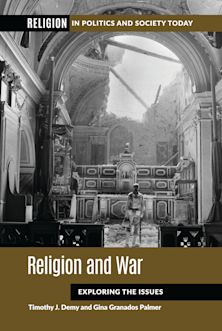- Home
- ACADEMIC
- History
- Military and Naval History
- Pacific Asia?
This product is usually dispatched within 3 days
- Delivery and returns info
-
Free US delivery on orders $35 or over
Exam copy added to basket
Choose your preferred format. Please note ebook exam copies are fulfilled by VitalSource™.
You must sign in to add this item to your wishlist. Please sign in or create an account
Description
Most studies of Asia-Pacific security are marked by pessimism and continuing belief in the virtues of a balance of power. Pacific Asia? goes against the grain by pointing to a number of positive developments-especially economic-in regional relationships, the absence of an arms race, the growth of multilateral groups, and an emerging consensus on the importance of nonmilitary paths to national security. Above all, Mel Gurtov stresses a definition of security that focuses on basic human needs, social justice, and environmental protection. The author disagrees with proponents of a China threat, criticizes U.S. Cold War notions of security through forward-based power, and argues for new efforts at regional dialogue based on multilateral cooperation, sensitivity to Asian nationalism, and a role for Japan as a "global civilian power."
Table of Contents
Chapter 2 Preface
Chapter 3 The New Face of Security in Post-Cold War Asia
Chapter 4 Sources of Security and Insecurity
Chapter 5 The Asian Way
Chapter 6 China Rising: Threat or Opportunity?
Chapter 7 Japan: Dependent Nationalism
Chapter 8 The Two Koreas: Uneasy Coexistence
Chapter 9 The United States and East Asia
Chapter 10 Toward a More Pacific Asia
Chapter 11 Bigliography
Chapter 12 Index
Product details
| Published | Dec 17 2001 |
|---|---|
| Format | Paperback |
| Edition | 1st |
| Extent | 240 |
| ISBN | 9780742508514 |
| Imprint | Rowman & Littlefield Publishers |
| Dimensions | 9 x 6 inches |
| Series | Asia in World Politics |
| Publisher | Bloomsbury Publishing |
About the contributors
Reviews
-
Within the context of a burgeoning literature on Asian security, this book is wise, welcome, and timely. It suggests a range of preventive policies that are workable, globally humanist, and culturally appropriate.
Journal of Asian Studies


































